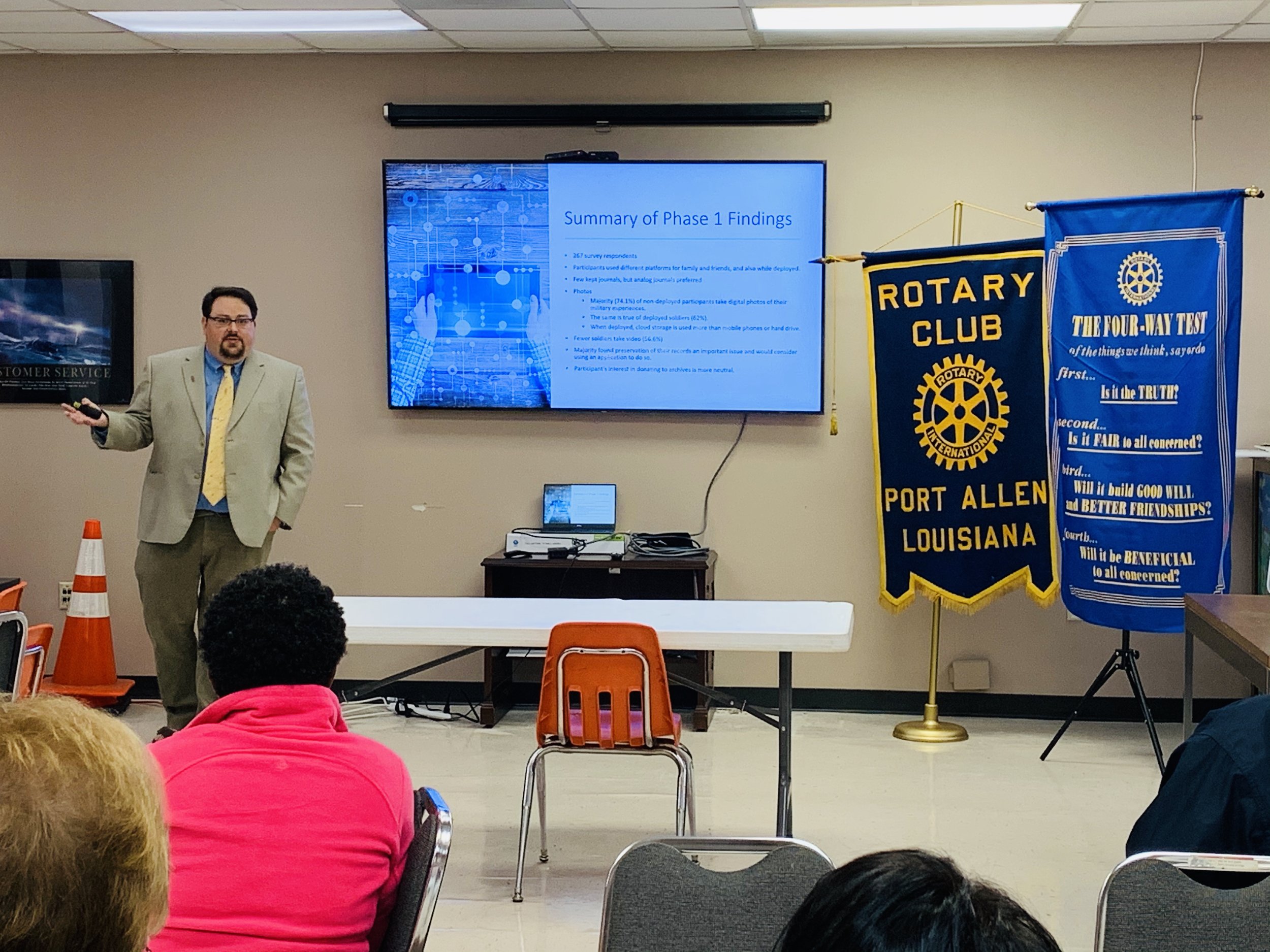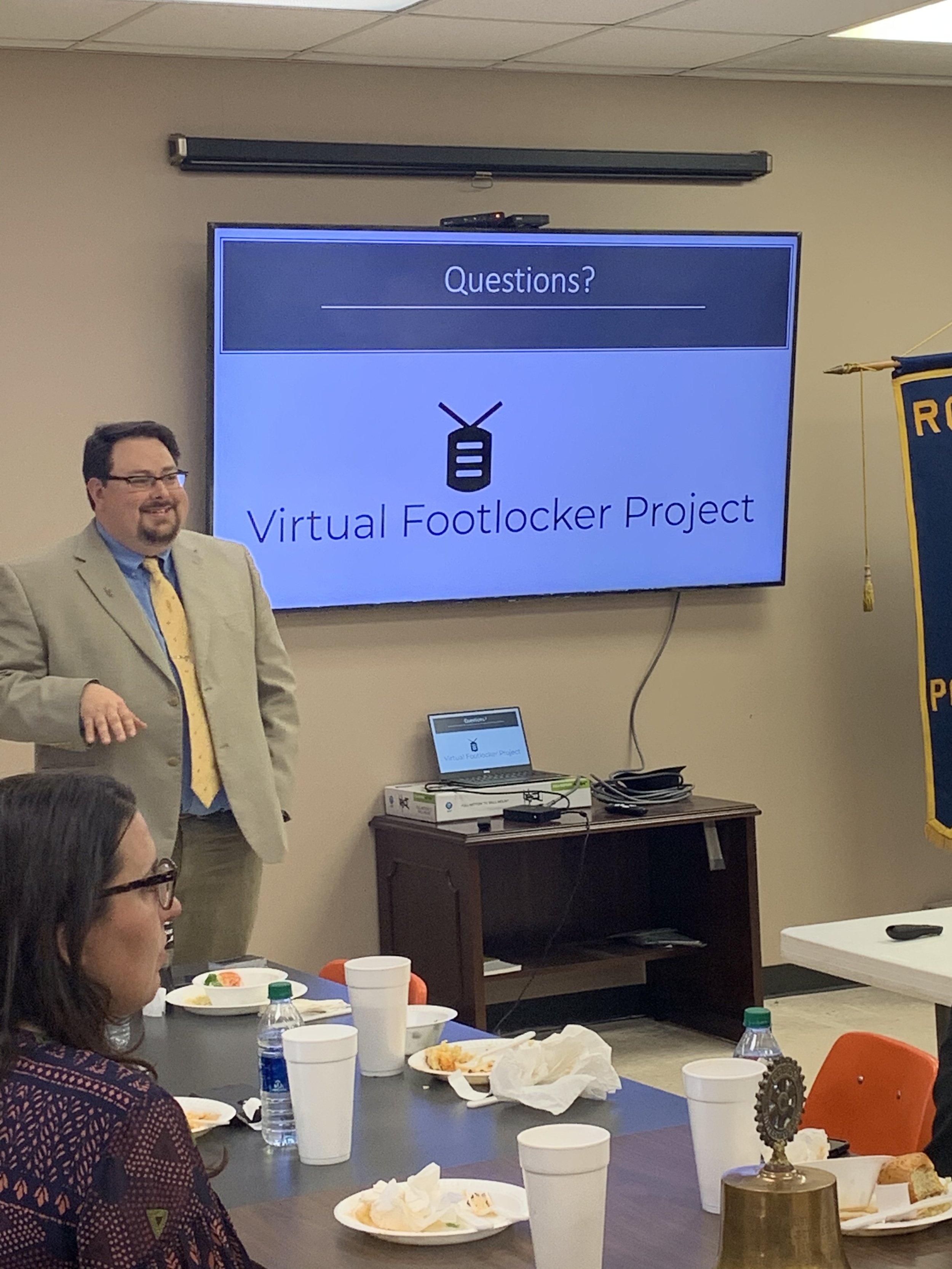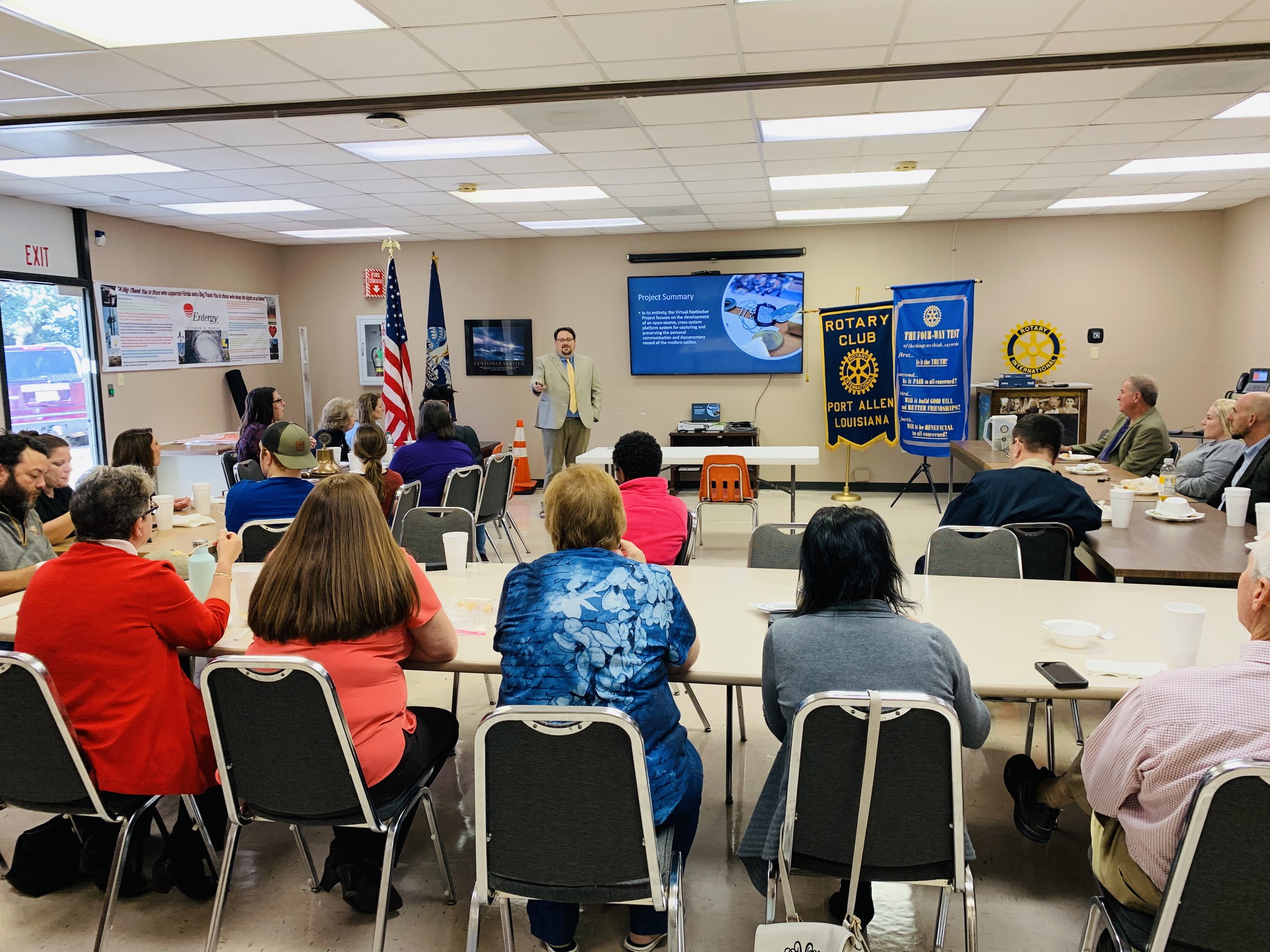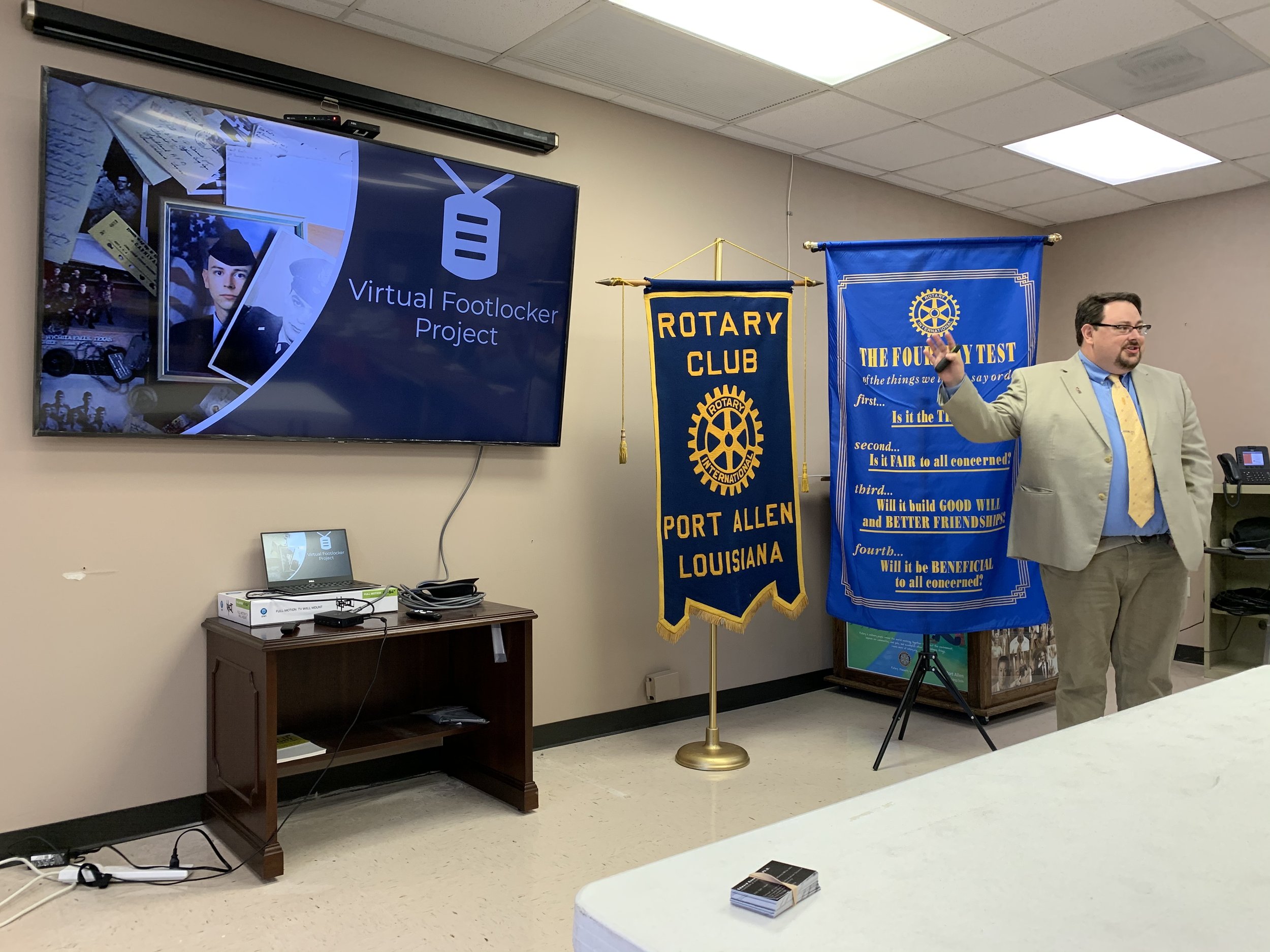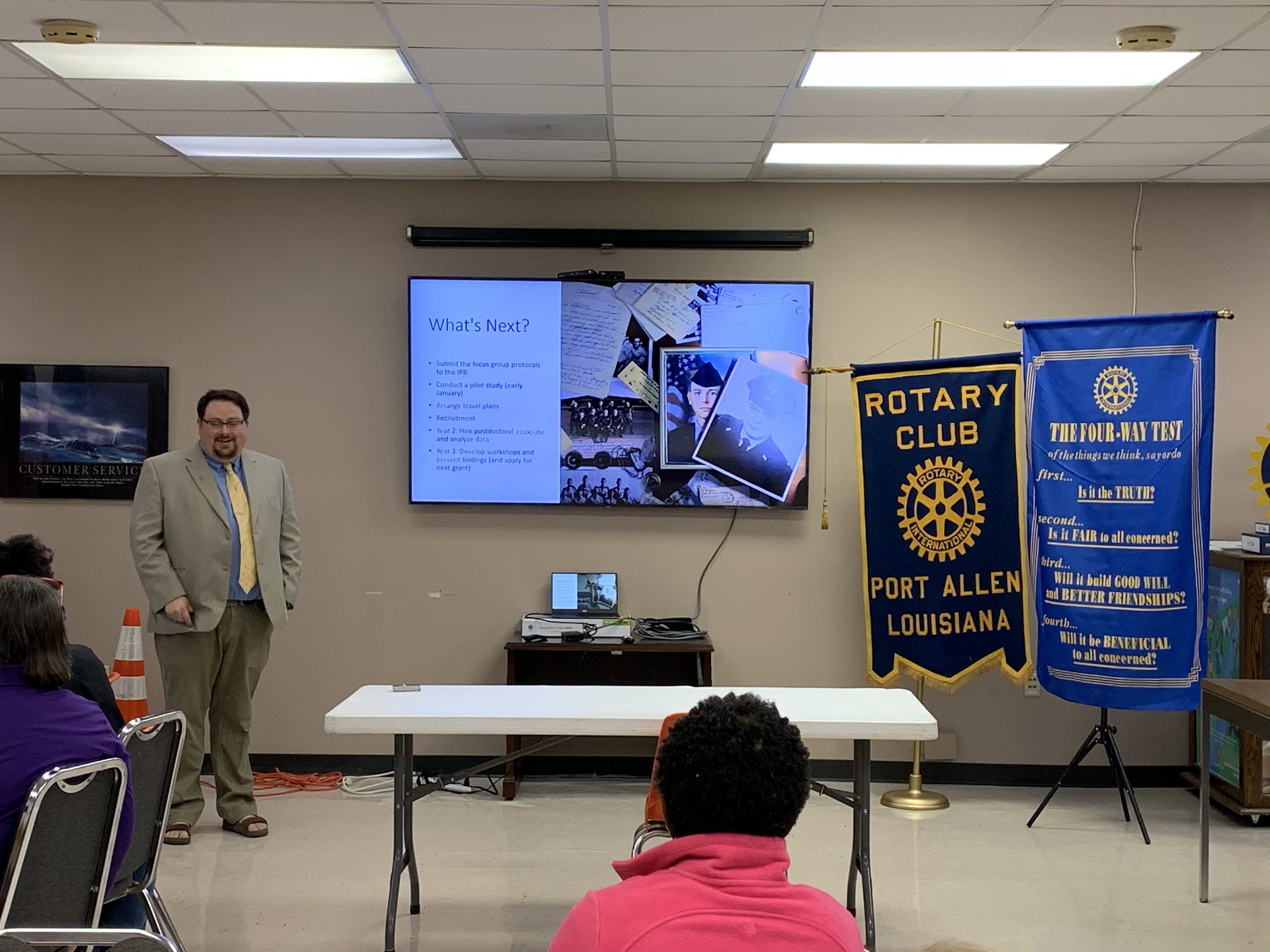VFP Completes Focus Groups
We are excited to announce the completion of our focus groups. Over the past several months we held twenty-two individual focus groups. For each military branch, we held two sessions for officers and two for enlisted personnel. At the end, we also included two focuses group specifically for women. Each of the sessions lasted about an hour and a half, and we had nearly 100 participants. We are actively transcribing the discussions and will begin analyzing the data over the next months.
Allan Martell Joins VFP
In August of 2020, Dr. Allan Martell was hired as a postdoctoral researcher at the School of Library and Information Science (LIS) where he collaborates with the Virtual Footlocker Project (VFP). His research centers on youths’ memories of historical episodes of violence such as civil wars, genocides, or dictatorships. In his work, he traces the interactions of youths with historical representations of violence in cultural heritage organizations — such as memorials, museum exhibitions, and archival records — and how the design decisions around such representations shape these interactions. Martell’s interest in historical episodes of violence is informed by his own experience having been born during the civil war of El Salvador (1980-1992) and growing up in the postwar period. He is deeply interested in how personal archives of wartime serve as interfaces with the violent past, and how war veterans, through their records, offer opportunities for critical reflection and emotional engagement with this past.
COVID-19 Hits the VFP
Over the past several months, the VFP staff worked hard to coordinate six sets of focus group locations near significant military centers in the United States. Unfortunately, with the impact of the COVID-19 pandemic, we have made the tough decision to cancel all of the in-person focus group trips. While we are saddened that we will not be able to see our participant in person, we are excited for the opportunity to use Zoom to conduct the focus groups. Using Zoom will allow us to include a wider range of participants in the study. We are currently developing a new online protocol and will begin recruiting for participants soon. Stay tuned and thank you for your patience.
Virtually Vital
With a $2,000 Dean’s Circle seed grant, LSU School of Library & Information Science (SLIS) Associate Director Edward Benoit III, Ph.D., launched the Virtual Footlocker Project (VFP) to investigate how contemporary veterans and active duty personnel document their time in service. He was later awarded a $391,000 early career grant from the Institute of Museum and Library Services (IMLS) to take the project to the next level.
The following was originally published by the LSU Foundation in Cornerstone Winter 2019 and Spring 2020.
With a $2,000 Dean’s Circle seed grant, LSU School of Library & Information Science (SLIS) Associate Director Edward Benoit III, Ph.D., launched the Virtual Footlocker Project (VFP) to investigate how contemporary veterans and active duty personnel document their time in service. He was later awarded a $391,000 early career grant from the Institute of Museum and Library Services (IMLS) to take the project to the next level.
In our Snapchat-Skype-Instagram world, images and text appear and disappear in split seconds. How will the experiences of our generation survive the ravages of time? That’s what Benoit wondered on a long flight from Milwaukee to Baton Rouge for a job interview with LSU. Of particular interest to the second-generation Air Force veteran and Ph.D. in information studies was how much history would be lost if soldiers’ digital descriptions of events and interactions with family and each other vanished into cyberspace.
“I began thinking about what items would mark my time in service and of current military personnel,” Benoit said.
For generations, airmen, sailors, marines, and soldiers documented their wartime experiences in personal diaries, photographs, and correspondence. Veterans often kept these collections long after their service and handed them down to family members. Some items eventually make their way to museums and archives. In archives, these treasured personal accounts serve a vital role in humanizing wartime sacrifices and experiences.
“With the shift toward digital technologies over the past 20 years, the contemporary 21st-century soldier no longer creates the same analog personal archives,” Benoit said. “That creates a critical future gap in the record.”
Shortly after joining the SLIS faculty in 2014, Benoit submitted a grant application to the LSU College of Human Sciences & Education (CHSE) Dean’s Circle to explore options for safeguarding military memories made on digital devices.
“I loved the name, and we found the application to be unique,” recalled Arthur M. Halbrook, Ph.D., then vice president of CHSE Dean’s Circle.
“These firsthand accounts are recreations of a moment in time and represent reflections of how things really were,” Halbrook continued. “They’re a part of history that should be preserved. If they’re lost, they’re lost forever.”
The Dean’s Circle seed grant allowed Benoit to catalog the types of formats active duty personnel used and where they stored these documents, videos, and images. He presented preliminary results at a prestigious international conference and published an article in Preservation, Digital Technology & Culture.
Based on those findings, Benoit received the Russell B. Long Professorship in 2018 to collect and analyze additional data. Now, with the IMLS funding, “We will conduct a series of focus groups, map technical requirements on existing standards, identify technical and policy-based challenges, and propose a functional framework for protocol design,” explained Benoit. “We will develop a series of workshops for archivists.”
Though it is still in the formative stages, VFP has already received national attention and support from the United Service Organizations, Wounded Warrior Project, Louisiana Secretary of Veterans Affairs, Louisiana National Guard Museum, Betty H. Carter Women Veterans Historical Project, and National WWII Museum.
In recognition of his contributions to information science, Benoit was recently honored as CHSE’s 2019 Advocate for Diversity and received the University of Wisconsin-Milwaukee’s School of Information Studies 2017 Distinguished Alumni Award. This past July, Benoit co-authored “Participatory Archives,” a book that explores how the archival community is leveraging social media and digital technology to engage users and expand collections.
While the research and technology pilot program involves only active duty military and veterans, its innovative application may one day help preserve and archive precious digital memories for families everywhere.
Originally published by the LSU Foundation in Cornerstone Winter 2019 and Spring 2020.
Rotary Club Presentation
The Rotary Club of Port Allen, Louisiana invited Dr. Benoit to speak about the Virtual Footlocker Project during their monthly meeting on November 19, 2019. He presented for thirty minutes to an audience of 34 members and took questions for a while after the presentation.
